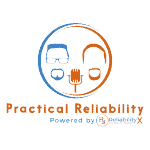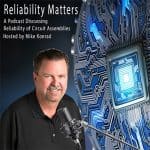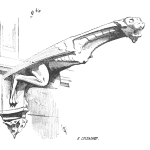
RRP 053 – 5 Habits of Extraordinary Reliability Engineers with Peter Horsburgh
This week on Rob’s Reliability Project, I welcome on Peter Horsburgh to talk about his book, 5 Habits of Extraordinary Reliability Engineers. We talk about what the 5 habits are, how to apply them and Peter gives us his top tips on how to become an extraordinary reliability engineer!
I have released my own reliability, maintenance and asset management coaching, consulting and professional services offerings, check out http://robsreliability.com/ for more information and if I can help you become a better reliability engineer or your company achieve it’s reliability goals, please email me at robsreliabilityproject@gmail.com. I look forward to working with you.
In addition, if your company sells products or services to maintenance, reliability and asset management professionals and you would be interested in having your message spread to engaged industry professionals, tell your marketing manager about Rob’s Reliability Project. There are advertising options available from appearing on the podcast, video/picture content to having an ad read on the show. If one of those appeals to your company, email me at robsreliabilityproject@gmail.com to get more information.
If you haven’t signed up for my weekly reliability newsletter with extra exclusive content, go to http://robsreliability.com/email-list/ and sign up!
If you have any questions, business inquiries or if you’d like to appear on the podcast, email me at robsreliabilityproject@gmail.com
Check out http://robsreliability.com/
For the 5 Habits of Extraordinary Reliability Engineers – https://www.reliabilityextranet.com/the-5-habits/
Follow Peter Horsburgh on LinkedIn – https://www.linkedin.com/in/phorsburgh/
Follow Rob’s Reliability Project on LinkedIn – https://www.linkedin.com/company/robsreliabilityproject/
Follow Rob’s Reliability Project on Facebook – https://www.facebook.com/robsreliabilityproject/









 Ask a question or send along a comment.
Please login to view and use the contact form.
Ask a question or send along a comment.
Please login to view and use the contact form.